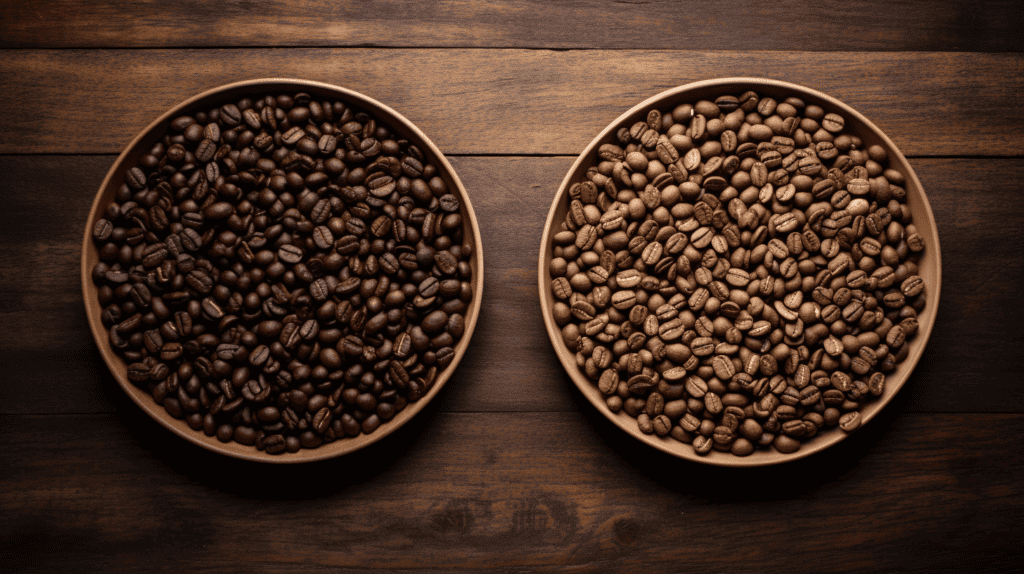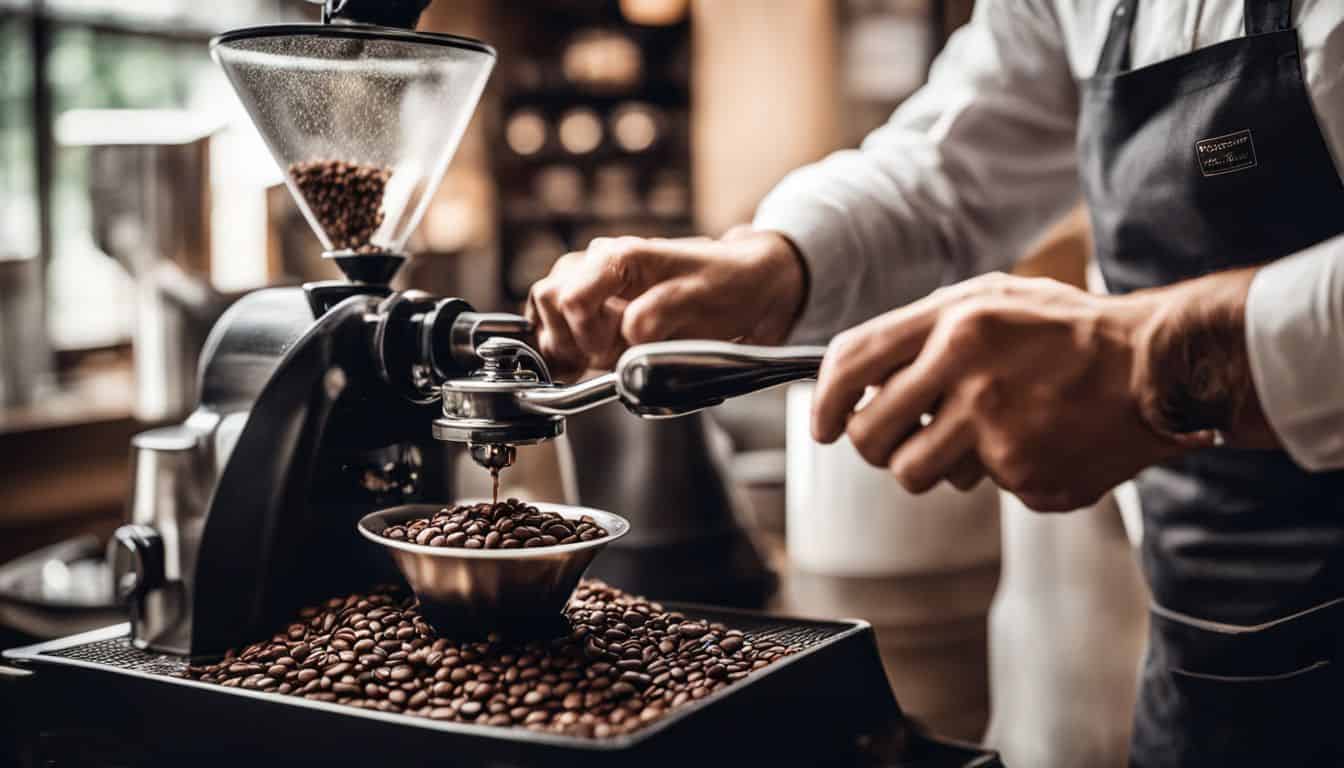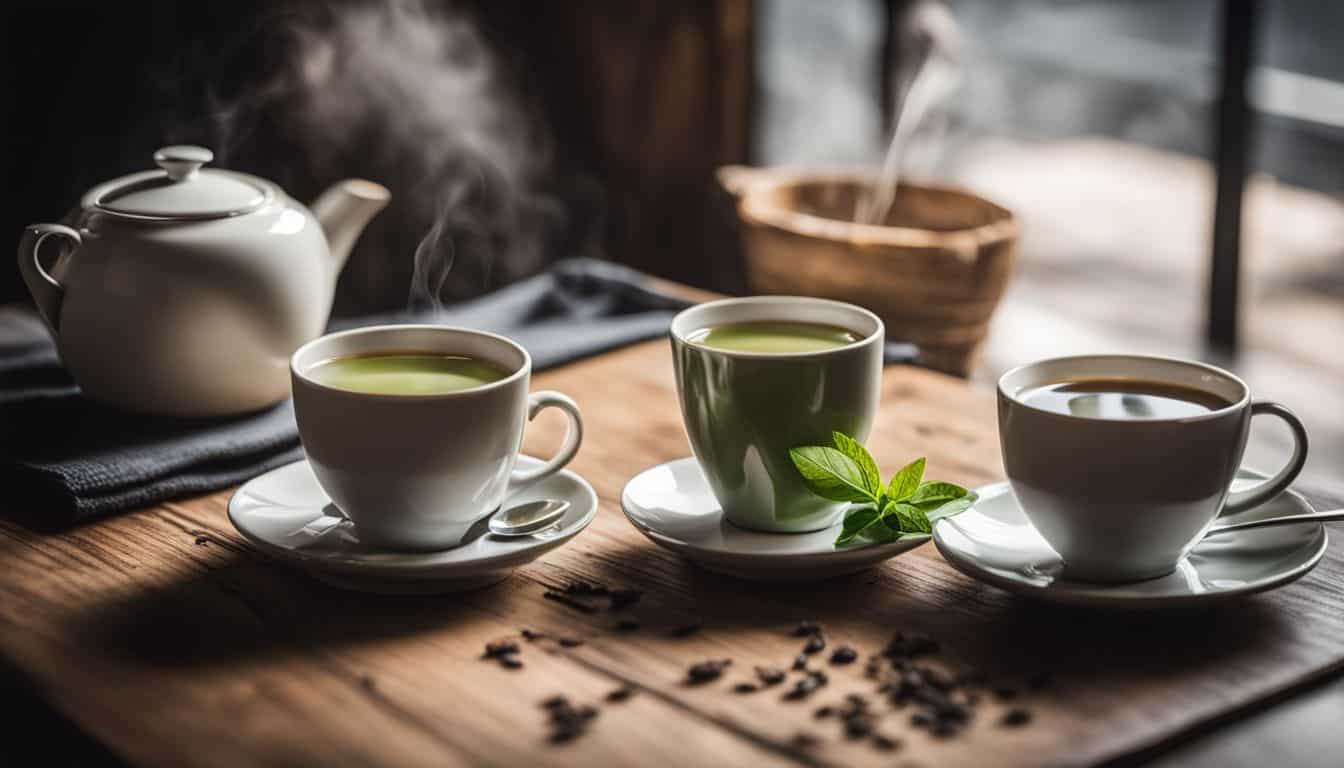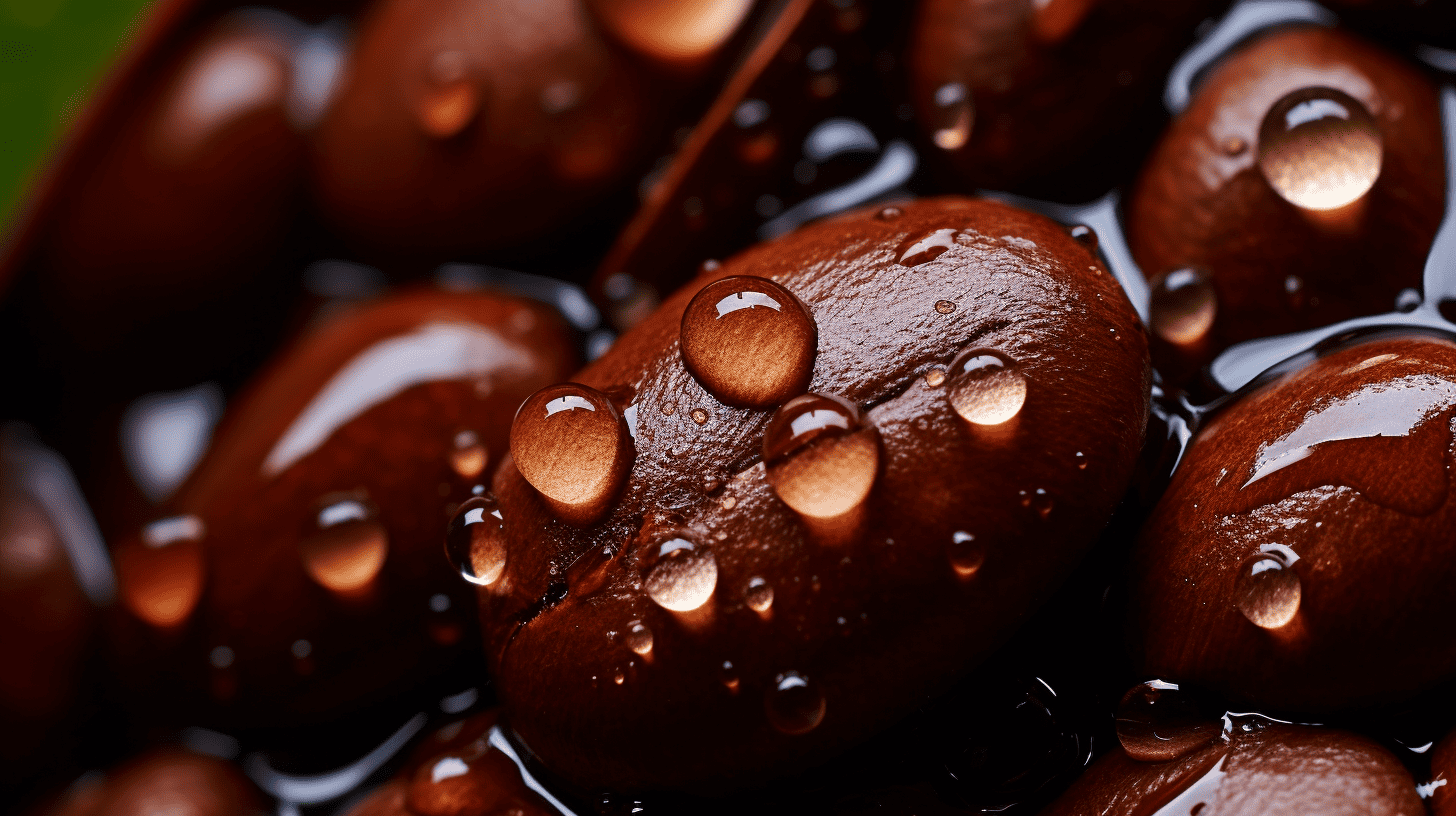You’re not alone if you’ve wondered why your morning cup of Joe doesn’t always taste as good as the one from your favorite coffee shop. I had the same question, until I learned a surprising fact – coffee freshness can dramatically alter its flavor profile and quality! This blog post dives deep into comparing fresh coffee versus old coffee, and how their differences impact not only taste but also aroma, acidity, and overall enjoyment.
Ready to elevate your home-brewing game? Let’s unlock these secrets together! Today we look at fresh coffee vs old coffee.
Key Takeaways
- Fresh coffee brings bold and crisp flavors, retained CO2 and aromatics, and a delightful acidity to your cup.
- Old coffee develops dull and bitter flavors due to oxidation, resulting in a lackluster brew that lacks sweetness and acidity.
- To ensure freshness, check the roast date, store coffee properly in an airtight container away from heat and light, and grind fresh just before brewing.
The Impact of Fresh Coffee
Fresh coffee brings unbelievable flavors, retained CO2 and aromatics, and a crisp acidity to your cup.
Unbelievable flavors
Fresh coffee wakes up your taste buds. It bursts with many great tastes. Imagine biting a ripe fruit straight off the tree, so rich and full of life. That is the feel fresh coffee gives in every cup you brew.
You would find blends of chocolate, berry, nuts and so much more when you sip fresh coffee. The flavors are bold and crisp! They dance on your tongue before going down smoothly rather than dull or bitter like old coffee can be.
Retained CO2 and aromatics
Freshly roasted coffee beans retain carbon dioxide (CO2) and other aromatic compounds from the roasting process. This retention of CO2 is important because it helps to preserve the flavors and aromas of the coffee.
However, if the CO2 is not allowed to escape before brewing, it can negatively affect the final cup’s taste. To find that perfect balance, freshly roasted coffee beans need a few days to degas before they reach their peak flavor.
Some aromatics may also be lost during this time, so it’s essential to brew your fresh coffee within a reasonable timeframe after roasting for maximum enjoyment.
Crisp acidity
I love the crisp acidity in fresh coffee. It adds a delightful brightness to the flavor profile and makes every sip refreshing. As coffee ages, this acidity can become dull and less pronounced, resulting in a flat taste.
That’s why it’s important to enjoy your coffee when it’s fresh for that vibrant and lively experience. The carbon dioxide in freshly roasted beans also contributes to this acidity, but it dissipates over time, leading to a more mellow cup of coffee.
So if you want that invigorating tanginess, make sure you savor your coffee while it’s still at its peak freshness.
The Downsides of Old Coffee
Old coffee, with its dull and bitter flavors, is a far cry from the delightful experience of fresh coffee. The process of oxidation robs it of its once vibrant aromatics, leaving behind a lackluster brew that fails to excite the senses.
Dull and bitter flavors
Old coffee often develops dull and bitter flavors, which are far from enjoyable. As coffee ages, desirable flavors and aromas slowly disappear, leaving behind unpleasant compounds that make the brew taste bitter.
The refreshing sweetness and crisp acidity that you expect from a good cup of coffee can fade away over time. It’s like any fruit that loses its deliciousness as it gets older – fresh is always better! So, if you want to savor the full flavor of your coffee beans, make sure they are fresh and not sitting around for too long.
Oxidation
Oxidation is a big problem when it comes to coffee. As soon as coffee beans are roasted, they start to lose their freshness. Oxygen in the air reacts with the coffee’s oils and compounds, resulting in a change of flavor and aroma.
This process is called oxidation, and it can make your coffee taste dull and bitter. To keep your coffee fresh for longer, it’s important to store it properly in an airtight container away from light, heat, and moisture.
The longer your coffee sits around exposed to air, the more it will degrade in quality. So if you want that delicious cup of joe, make sure you use freshly roasted beans!
Loss of aromatics
Fresh coffee beans have a delightful aroma that adds to the overall sensory experience of enjoying a cup of joe. However, as coffee ages, it gradually loses its aromatic compounds, resulting in a less vibrant and enticing scent.
This loss of aromatics can greatly impact the flavor profile of the brewed coffee. Without those aromatic compounds, the taste may become dull and uninspiring. So, if you want to enjoy the full-bodied flavors and captivating aromas of your favorite coffee beans, it’s essential to brew them when they are fresh.
How to Determine Freshness
To determine freshness, check the roast date, store coffee properly, and grind it fresh for a delicious cup of java. Discover these essential tips to elevate your coffee experience!
Roast date
Freshness is crucial when it comes to coffee, and one way to determine the freshness of your coffee beans is by checking the roast date. The roast date tells you when the coffee was roasted, which gives you an idea of how long it has been since the beans were at their peak flavor.
Ideally, you want to consume your coffee within a few weeks of the roast date for optimal taste. Coffee that has been sitting on the shelf for months will start to lose its flavors and aromas, resulting in a less enjoyable cup of joe.
So, when buying coffee beans, be sure to check the roast date to ensure you’re getting a fresh brew every time.
Proper storage
To keep your coffee fresh, it’s important to store it properly. First, make sure you store your coffee beans in an airtight container. This will help prevent oxygen and moisture from getting in and degrading the flavor.
Second, keep the container in a cool and dark place, away from direct sunlight or heat sources. Heat can accelerate the aging process of coffee and result in a loss of flavor. Lastly, try to buy whole bean coffee instead of pre-ground.
Whole beans stay fresher longer because they have less surface area exposed to air. So if you want that delicious cup of coffee every morning, remember to store your beans correctly!
Grinding fresh
When it comes to brewing a delicious cup of coffee, grinding fresh is essential. When coffee beans are ground, they release their flavors and aromas, giving you that perfect cup. Grinding fresh ensures that you get the most out of your beans because once coffee is ground, it starts to lose its freshness and flavor rapidly.
To maintain the best quality, grind your beans just before brewing. This way, you’ll have a flavorful and aromatic cup of coffee every time. So remember, always grind fresh for the best-tasting brew!

The Importance of Freshness
Freshness is crucial when it comes to coffee because it ensures peak flavor, enhanced aroma, and better quality brews.
Peak flavor
When it comes to coffee, peak flavor is what we all crave. It’s that moment when the beans are at their freshest and most flavorful. Freshly roasted coffee beans retain all the aromatic compounds that make it taste so good.
As time goes by, those flavors start to fade and you’re left with a duller, less satisfying cup of joe. That’s why it’s important to drink your coffee soon after it has been roasted.
The longer you wait, the more those desirable flavors dissipate, leaving you with a less enjoyable experience. So if you want the best tasting coffee possible, make sure to seek out freshly roasted beans and brew them as soon as possible for maximum enjoyment.
Enhanced aroma
Freshly roasted coffee beans have an enhanced and delightful aroma. When coffee is freshly roasted, it retains all the aromatic compounds that contribute to its unique smell. This means that when you brew a cup of fresh coffee, the aroma will be rich and inviting, filling your senses with anticipation.
The longer coffee sits after being roasted, the more these aromatic compounds start to degrade and fade away. So if you want to experience that wonderful aroma in your morning cup of joe, make sure you’re using fresh coffee beans!
Better quality brews
Fresh coffee beans that are used to make a brew result in better quality and more satisfying cups of coffee. When the beans are fresh, they have retained their peak flavors and aromas, giving you a more enjoyable drinking experience.
The freshness also enhances the overall quality of the brew, making it taste vibrant and balanced. So if you want to step up your coffee game and savor every sip, using fresh coffee beans is definitely the way to go.
Conclusion on Fresh Coffee Vs Old Coffee
In conclusion, the freshness of coffee plays a crucial role in its taste and quality. Freshly roasted coffee beans retain their flavors, aromas, and vibrant acidity. On the other hand, old coffee becomes dull and bitter as it loses its desirable qualities over time.
By paying attention to the roast date, proper storage, and grinding fresh, you can always enjoy the best possible cup of coffee. So, choose fresh coffee for a delightful brewing experience!
Which Type of Ground Coffee Provides the Best Flavor: Fresh Ground or Pre Ground?
When it comes to the best flavor, the debate of fresh ground coffee vs pre ground is ongoing. While pre ground coffee offers convenience, it may lose some nuances during packaging. On the other hand, fresh ground coffee allows you to experience the full-bodied richness and aroma. Ultimately, it depends on personal preference and the level of flavor you desire in your cup.
FAQs on Fresh Coffee Vs Old Coffee
1. How can I tell if coffee is fresh or old?
You can tell if coffee is fresh by checking the roast date on the packaging or smelling it for a strong, aromatic fragrance. Stale coffee may have a dull smell and taste.
2. Does old coffee taste different from fresh coffee?
Yes, old coffee can taste different from fresh coffee. Freshly brewed coffee tends to have a richer flavor and aroma, while stale or old coffee may taste flat or dull.
3. Can I still drink old coffee?
While you can still drink old coffee, it might not taste as good as freshly brewed ones because the flavor deteriorates over time. It’s best to consume within two weeks of roasting for optimal freshness.
4. How long does freshly roasted coffee stay fresh?
Freshly roasted whole bean or ground coffee stays freshest for about 2-4 weeks when stored properly in an airtight container away from light and moisture.





Leave a Reply